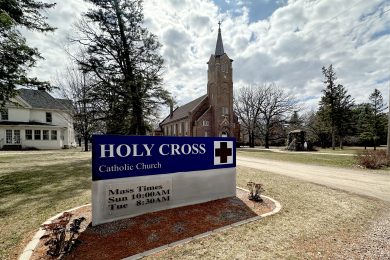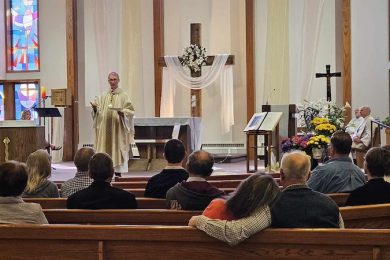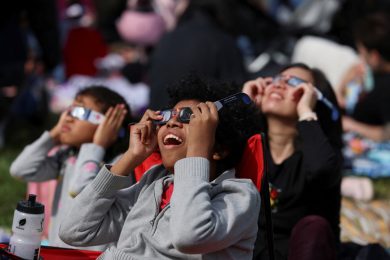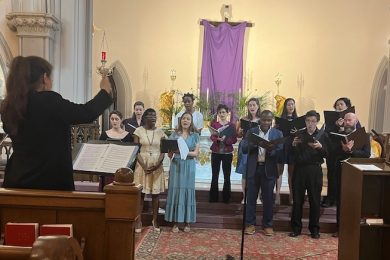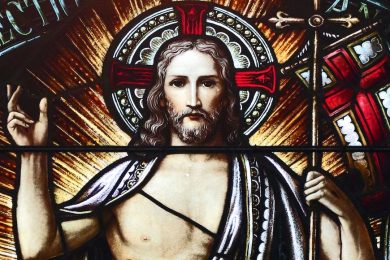“Nothing is certain in this world,” my mother often says,” except for the fact that one day we will all die.” A rather stoic and sobering assertion, indeed, yet one that wisely embraces the acceptance of life’s ultimate limitation.

Old age and illness are perhaps the two realities that more regularly confront us with our mortality. The brutality of violence and war continues to assess — almost irrationally — a deadly toll on many. The effects of poverty, hunger and lack of decent conditions to live shorten life for others.
Rich or poor, young or old, immigrant or citizen, believer or unbeliever, highly influential or almost invisible in the anonymous crowds of our growing cities, death is the great equalizer.
Such thought echoes the author of the book of Ecclesiastes: “For the lot of mortals and the lot of beasts is the same lot: The one dies as well as the other. Both have the same life breath. Human beings have no advantage over beasts, but all is vanity” (3:19).
During the last months of the year, Catholics reflect about the reality of death. The church’s liturgy brings us All Souls’ Day. Among Hispanic Catholics, the feast is widely known as “el Día de los Muertos” (the Day of the Dead).
The Day of the Dead calls our attention to our communal identity. It is not a day about death as an abstract idea or a mere superstition, but about commemorating our dead in faith: dead relatives and friends, ancestors, people known and unknown, saints, martyrs and witnesses.
The Day of the Dead is about cultivating relationships with those who once lived with us and now live in a different way. The dead are not completely gone. They remain alive in our memories; they remain in relationship with us; they are alive in God.
This day is also about cultivating relationships in our families, neighborhoods and faith communities as we remember. We live with gratitude for what we received from those who are not with us anymore. We live inspired by their memories and legacies.
We remember our dead to affirm life: life as a gift from God through which we become present to one another in history. Life in Jesus Christ, also a gift from God that never ends and incessantly transforms all that exists, including the created order.

The Day of the Dead is a true sign of hope. More exactly, hope in the resurrection. I am fascinated by how many Hispanic communities and families celebrate All Souls’ Day as Día de los Muertos with profound gratitude and a sense of fiesta.
Many Catholics, perhaps influenced by the fears and distortions about death that our culture impose upon us, tend to think of death mainly as sadness, loss and isolation. From that perspective, it makes sense that one wants to avoid it or ignore anything related to it.
The Day of the Dead, however, with its affirmation of the victory of life against death, the celebration of relationships that bridge the visible and the invisible, and the colorful symbolism that captures an omnipresent festive outlook in Hispanic cultures, tells a different story.
Remembering the dead with a sense of fiesta is quintessentially Christian. In Christ, the living and the dead partake in the communion of saints. In Christ, any sense that death is final is no more. Life is.
U.S. Catholicism is enriched by how Hispanics, Latin Americans and Caribbean Catholics remember our dead to affirm life. In this, we are not alone, which is major gift of being and celebrating our Catholic identity in a culturally diverse church.
Hosffman Ospino is professor of theology and religious education at Boston College.

